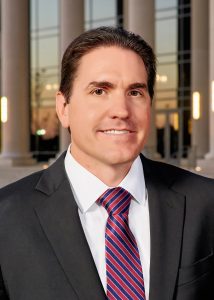
The criminal defense attorneys of SLG Law often get calls from people asking us what they can and can’t do when it comes to recording people. A mother in Virginia recently found out the hard way that recording someone without their knowledge can lead to felony charges. According to the article, the mother was concerned about another child at school bullying her child. She wanted to get proof of the bullying, so she sent her child to school with a recording device. Recording devices are prohibited at the school and school officials discovered the device. Subsequent to an investigation, the mother was charged with a felony for violating state law relating to recording someone’s communications without their knowledge. So, what about here in Jacksonville, Florida? What is the law in the State of Florida as it relates to recording people?
What is the law in Florida relating to recording other people’s conversations?
Florida Statute Section 934.03 lays out the law as it relates to recording someone’s communications. Florida is a two-party consent state. This means that all of the parties to the conversation must consent to recording of the conversation for the act of recording to be legal. A person who violates this law can be charged with a third degree felony punishable by up to five years in prison.
As a practical matter, this statute is often triggered by someone recording another individual without his or her knowledge in order to develop evidence against that person. For example, a person who has been victimized by an individual, sought help from law enforcement and was told that there was not enough evidence to pursue criminal charges may feel helpless and decide to record the person in an effort to obtain the evidence that they need. However, this in and of itself, could be a felony offense, regardless of whether the person was actually victimizing you.
What if we are in a public place or it is a public speech?
The Florida Legislature decided to define “oral communication” to include only oral communications “uttered by a person exhibiting an expectation that such communication is not subject to interception under circumstances justifying such expectation and does not mean any public oral communication uttered at a public meeting or any electronic communication.” So, recording a public speech without the speakers knowledge would not fall under the statute. A person charged with violating the statute may have a defense to the charge by asserting that the person who made the statement that was recorded did not exhibit an expectation that the communication was not subject to interception.
Child Sex Abuse/Physical Abuse Exception
There is an exception to the law that allows a child under 18 years old to record an oral communication if:
- The child is a party to the conversation,
- the child has reasonable grounds to believe that recording the communication will capture a statement by another party to the communication that the other party intends to commit, is committing, or has committed an unlawful sexual act or an unlawful act of physical force or violence against the child.
So, if a child is being sexually molested, physically abused or otherwise sexually or violently victimized, it would be lawful for the child to record the abuser without his or her knowledge.
Florida Statute Section 934.02 is very broad and complex. It covers a lot of behavior and is subject to judicial interpretation as well as to a factual determination by a jury. If you have been charged with illegally recording a person without their consent, contact an experienced criminal defense attorney.

Jeremy Lasnetski
Jeremy Lasnetski, managing partner at Lasnetski Gihon Law is a Florida Bar Board Certified Criminal Trial Lawyer and has been practicing criminal law in Jacksonville for over 16 years. Mr. Lasnetski received his Bachelor of Arts degree with honors from the University of Florida in 1997 and went on to obtain a law degree and an M.B.A. from the University of Florida in 2001.
After graduation, Mr. Lasnetski accepted a position as a prosecutor at the State Attorney’s Office in Jacksonville. During the next 6 1/2 years as a prosecutor, Mr. Lasnetski tried more than 50 criminal trials, including more than 40 felony trials. He was promoted in 2007 to Division Chief of the Repeat Offender Unit. Mr. Lasnetski was also a full time member of the Homicide Prosecution Team. In 2008, Mr. Lasnetski formed the Law Office of Lasnetski Gihon Law and began defending citizens in criminal court. He represents clients in both State and Federal criminal courts.
 Jacksonville Criminal Lawyer Blog
Jacksonville Criminal Lawyer Blog

